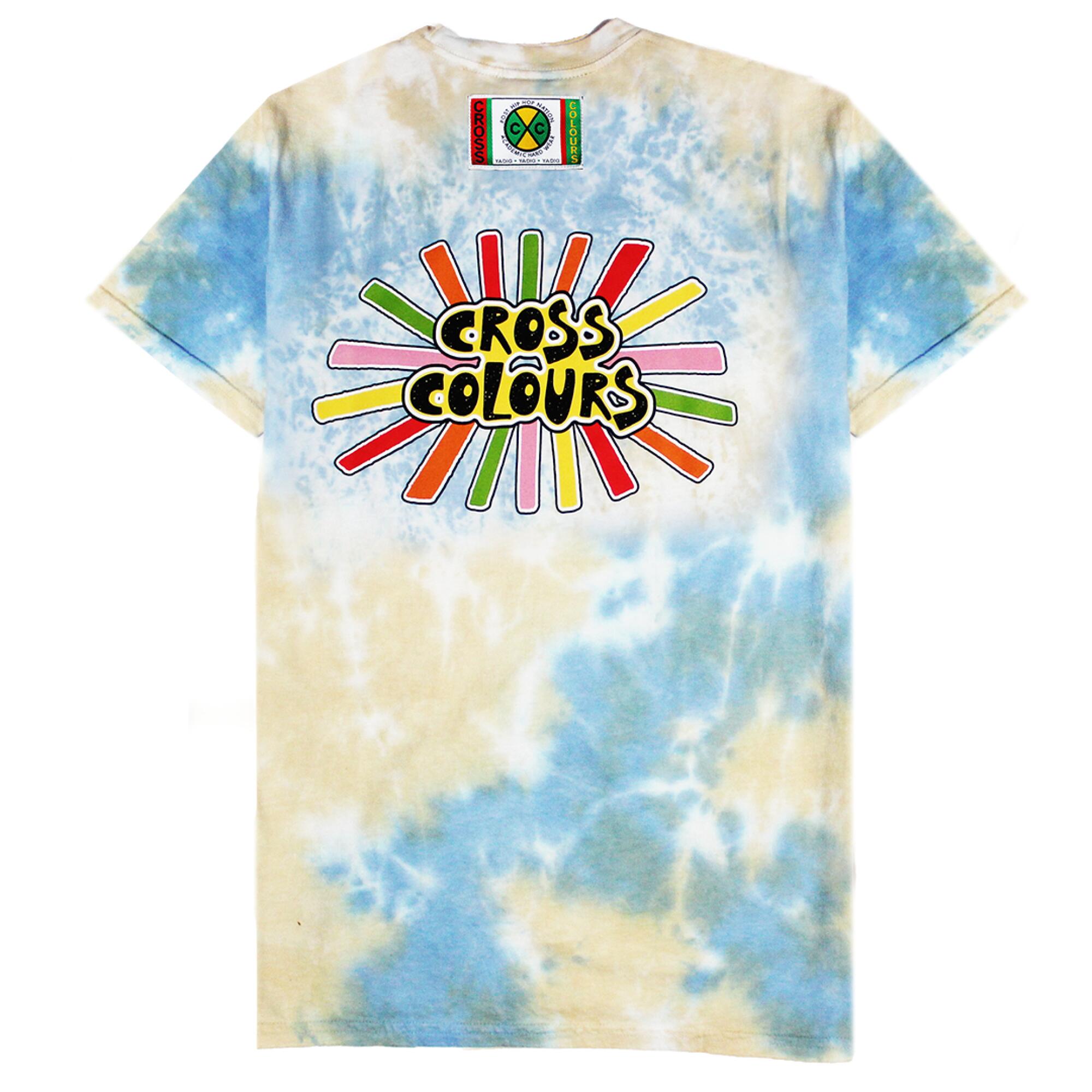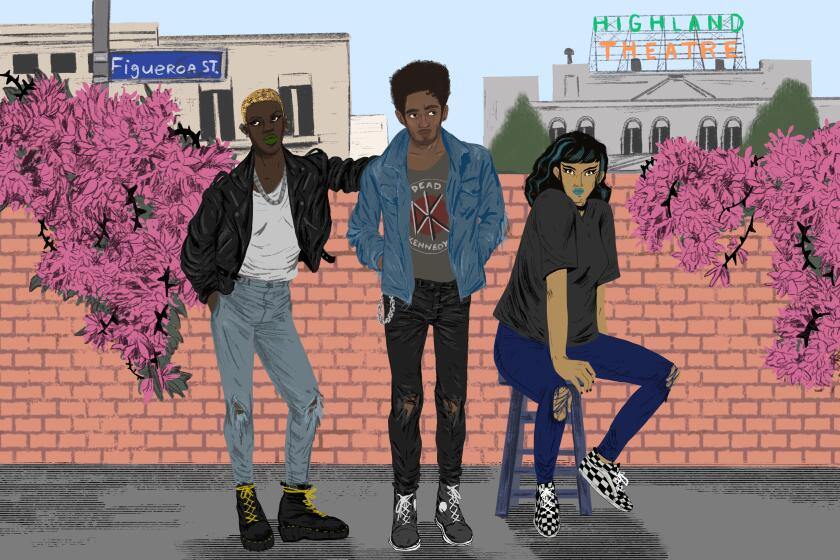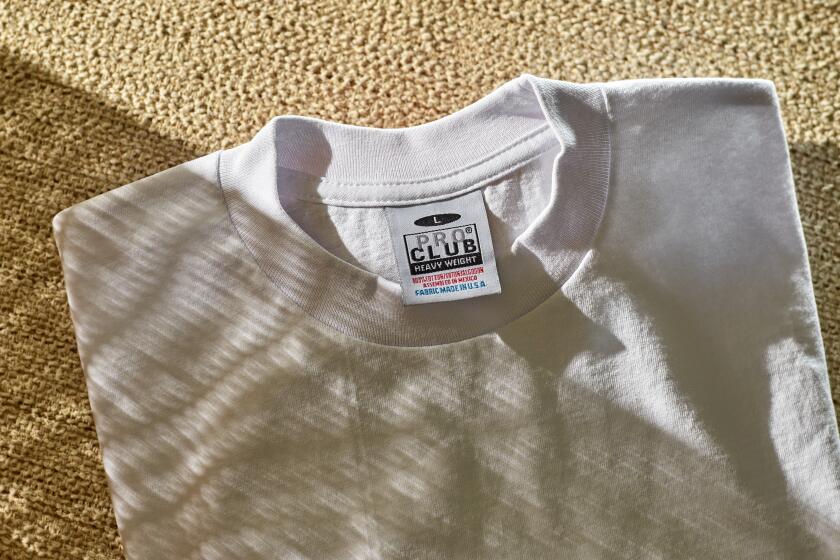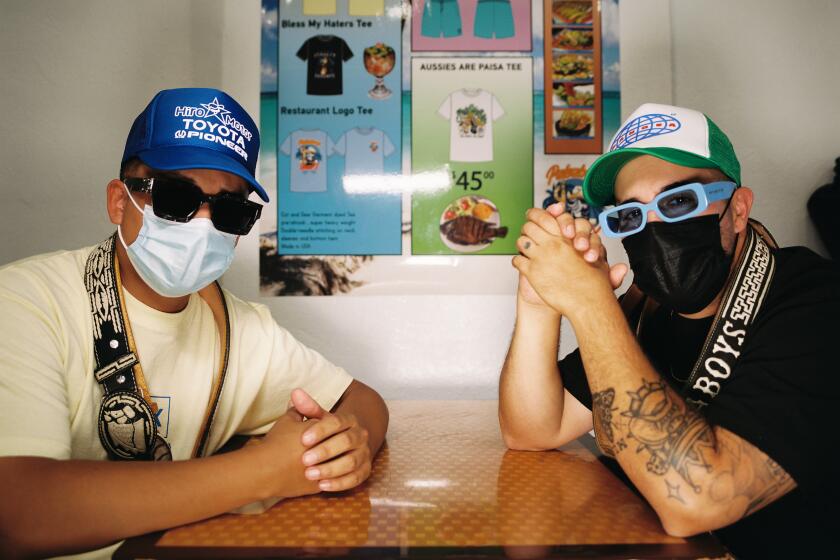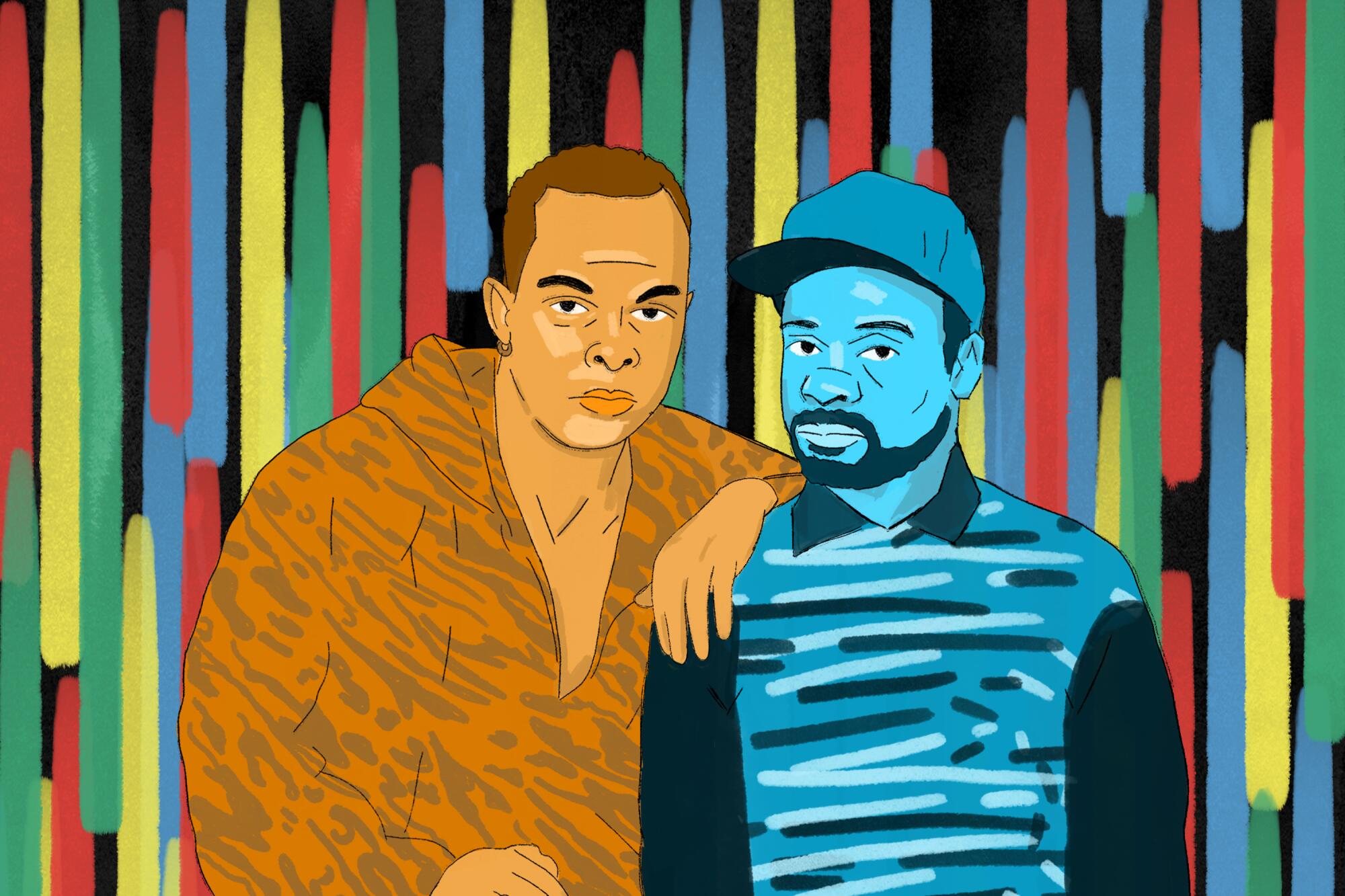
- Share via
This is part of Image Issue 4, “Image Makers,” a paean to L.A.’s luminaries of style. In this issue, we pay tribute to the people and brands pushing fashion culture in the city forward.
Cross Colours is no stranger to being ubiquitous. Co-founded by Carl Jones and TJ Walker in 1989, the Los Angeles brand, which is often credited as being one of the first streetwear lines, became as famous as the scores of celebrities who wore it through the 1990s and early 2000s. The list includes Will Smith, Aaliyah, Tupac Shakur, TLC and Snoop Dogg.
Today, a new generation — Dua Lipa, Zendaya, Drake and Billie Eilish — is often seen wearing Cross Colours’ jerseys, sweatsuits and bucket hats, onstage and off.
This fervent fascination with all things 1990s has been permeating fashion and culture for several years. Since its founding, Cross Colours has been an era-defining, visionary clothing brand, promoting its ethos of “Clothing Without Prejudice” across color-blocked T-shirts, baggy denim shorts and varsity-style jackets (from $40 for tees up to $500 for leather jackets). The resurgence of the label and its appeal to a new audience goes beyond ’90s nostalgia. It taps into the demand for our clothing to stand for something politically and culturally.
This summer, Cross Colours, which was the focus of a 2019-20 retrospective at the California African American Museum in L.A., was tapped by Nordstrom to appear in a revolving pop-up space inside the retailer’s New York flagship. Also, to celebrate the 30-year anniversary of “Boyz N the Hood,” Jones and Walker collaborated with Sony Pictures to create a 30-piece collection and honor the effect the film and clothing had on Black filmmakers and creatives and on American culture. Last month, the L.A.-based fashion pioneers filled us in on their current collaborations.
What is making fashion with a strong message and mission like today versus in 1989?
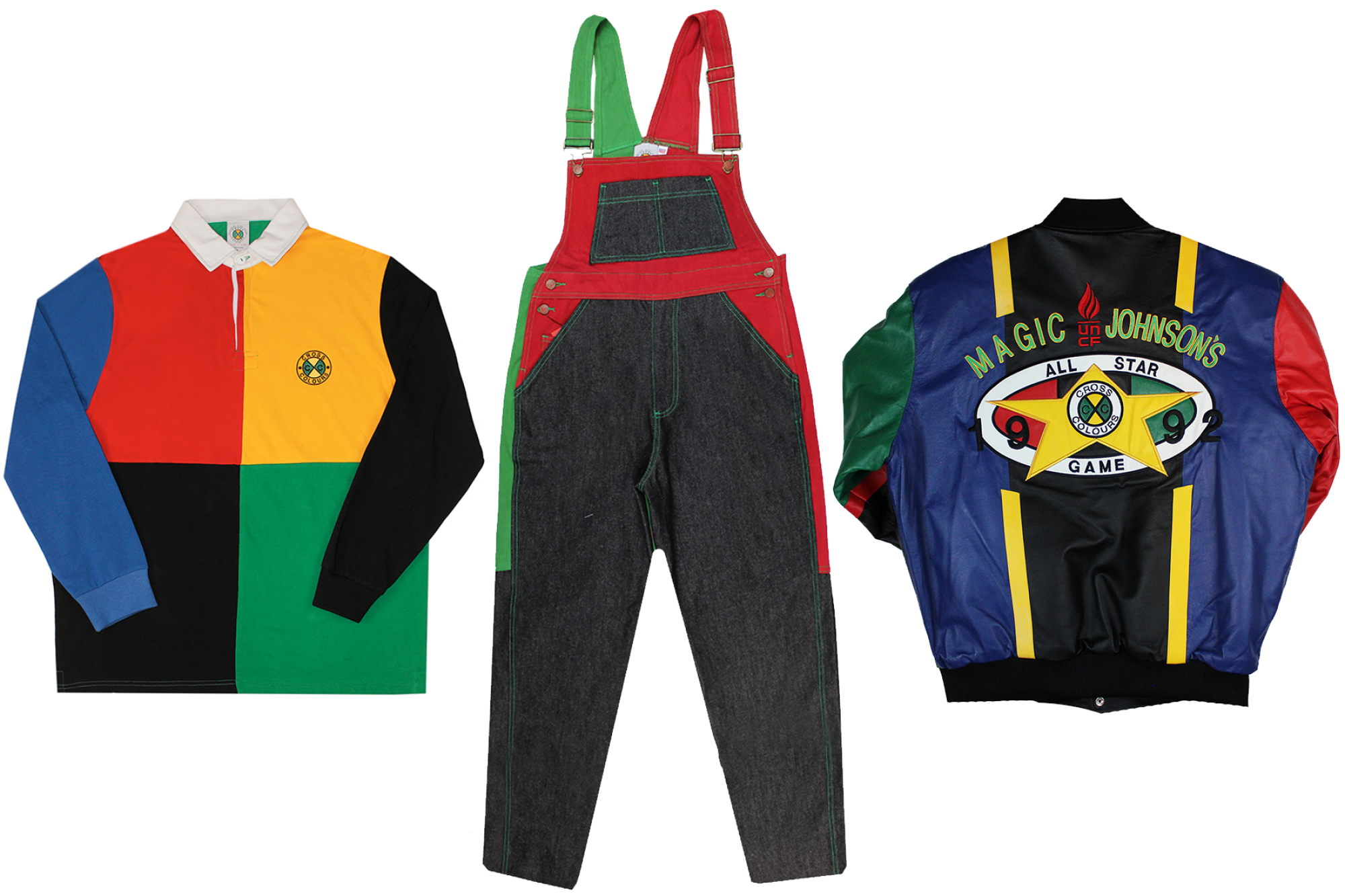
TJ Walker: It’s not different. It really isn’t different. It’s what we’ve done and what we always do. Whenever we go to create, we always come from a standpoint of what’s actually happening in the world, basically, whatever’s happening in your neighborhood.
Carl Jones: I think politically we’ve been forced to take a side and take a stronger stance. We’re promoting “Black Lives Are Loved” and “Love Black Lives.” That’s our version of Black Lives Matter. That’s our take on this because we’ve always been Black Lives Matter from a fashion perspective.
Image Makers stories
Jason Parham on the white T-shirt that changed L.A. fashion forever
Streetwear gods Kids of Immigrants know love is a long game
Sami Miró has the secret to making sustainable fashion work
The Paisaboys let us in on the long-running inside joke behind the gear
Porcelain Sneakerhead sends her regards
You were promoting “inclusivity in fashion” before anyone was really using that term. What does inclusivity mean to you?
CJ: You’re right. That word wasn’t in our vocabulary in 1989. We were African Americans from the community who were not celebrities. We’re not artists. We’re just average guys who went to design school, went to art school, got an education, put our thoughts together, worked hard and said, let’s bring the community together. Let’s talk about where we’re from, and what we love, and the fashion that we like to wear, and the colors we like to wear. Let’s talk about gang violence. Let’s talk about racism. Let’s talk about bringing people together. That was the whole genesis behind the brand. We’re fashion guys, but at the same time, we wanted to represent and show the world how we think and how we feel and how we perceive fashion.
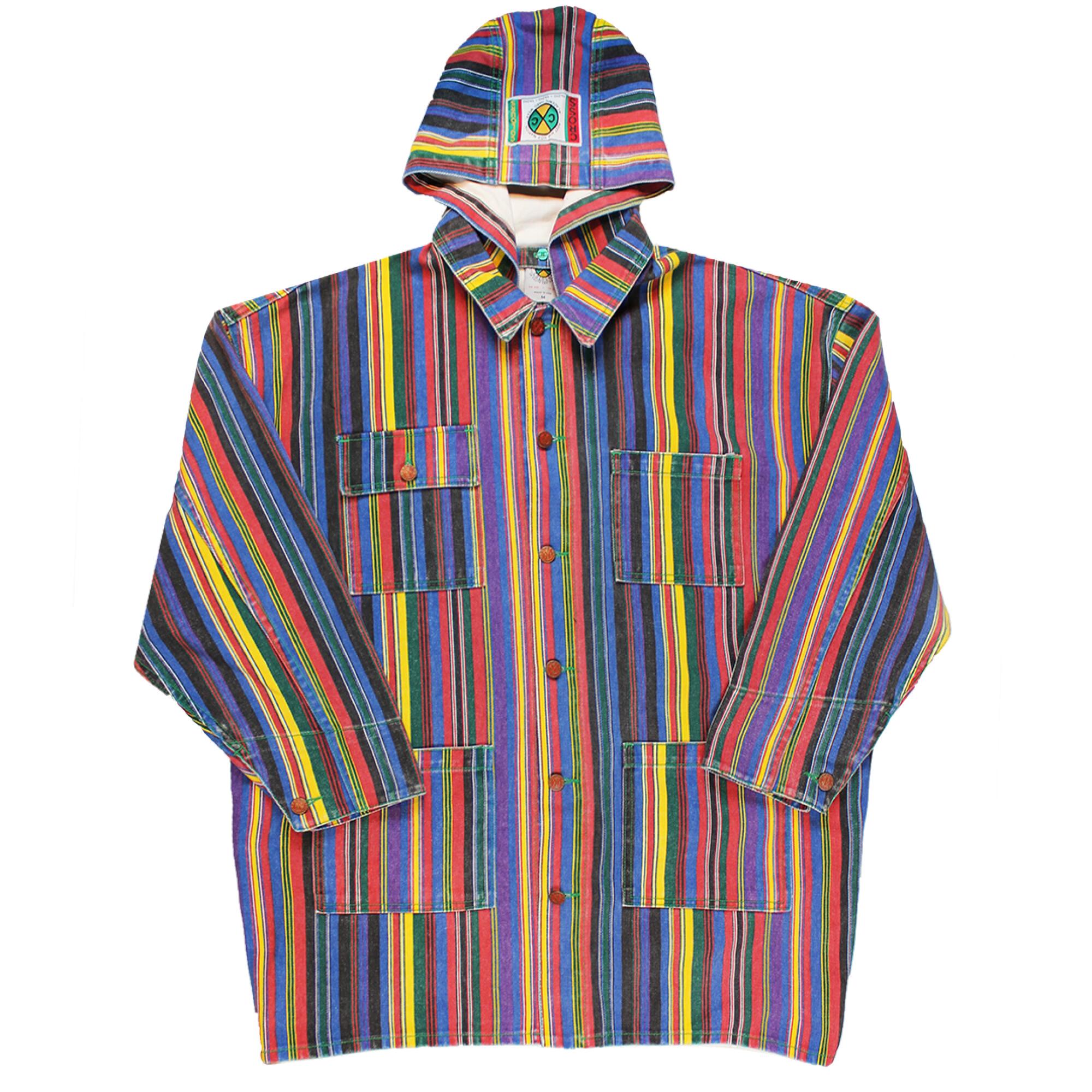
Tell us about the Nordstrom pop-up. For people who are being introduced to the brand for the first time, what do you hope they take away from the brand?
CJ: For the Nordstrom pop-up, you could walk into the Nordstrom’s New York front door, and there we were. You couldn’t miss us. They did everything they could in their power to promote [and] to get consumers excited about the fact that Nordstrom is carrying Cross Colours. I looked at it as if, “Wow, they’re really saying, ‘Everybody’s welcome in our store.’” That’s my point of view. Everybody’s welcome.
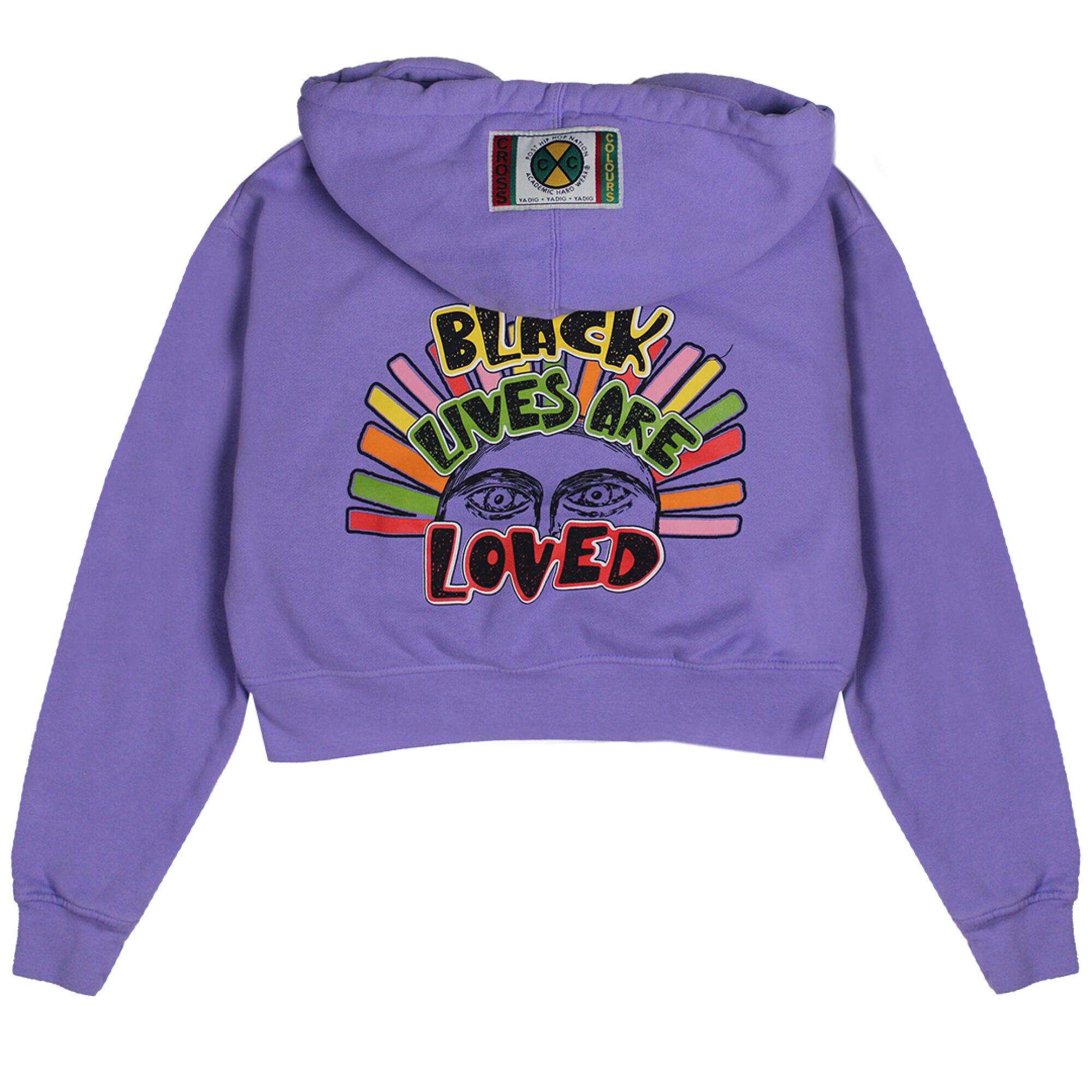
TJW: I think a big thing about the brand and what it did in the ’90s and what it still does now is it gives that sense of empowerment to the community and empowerment to the youth that they can do this. It can be done, especially when they really realize that it’s done by someone that looks like them. They go into the store and they go into the space and see that. I think that’s inspirational for them too to see Cross Colours and see that we are able to be in a retailer like Nordstrom — and to have something that was designed, manufactured and shipped by Cross Colours.
What constitutes the perfect fit? The residents of Highland Park, Lincoln Heights, Eagle Rock and other neighborhoods that make up Northeast L.A. seem to have decided once and for all: the skinny jean.
When creating the line for the “Boyz N the Hood” 30th-anniversary collection, did you feel pressure to interpret the look of such an iconic film?
CJ: It was a great opportunity offered to us from Sony Pictures. We love John Singleton. He was a pioneer as well, from a film point of view, from the community, from the ’hood. I’m from South-Central. I grew up in South-Central, so I can relate to “Boyz N the Hood.”
TJW: Something that we discovered with the brand is that whenever we try to do something outside of what we did before or try to change the formula or try to change the look or try to update, it doesn’t really resonate as well. So that’s why we always have to go back. We have to go back to the ’90s vision, the ’90s concept, the ’90s sensibilities, and pull from that. We already have the roadmap. We already have the template. We just have to go back and pull from what we’ve already done, even from the marketing approach, even from the product placement, even from the way we do our photo shoots, even the styles that we actually do as well. If we don’t do it right anyway, our customer will definitely hold us accountable.
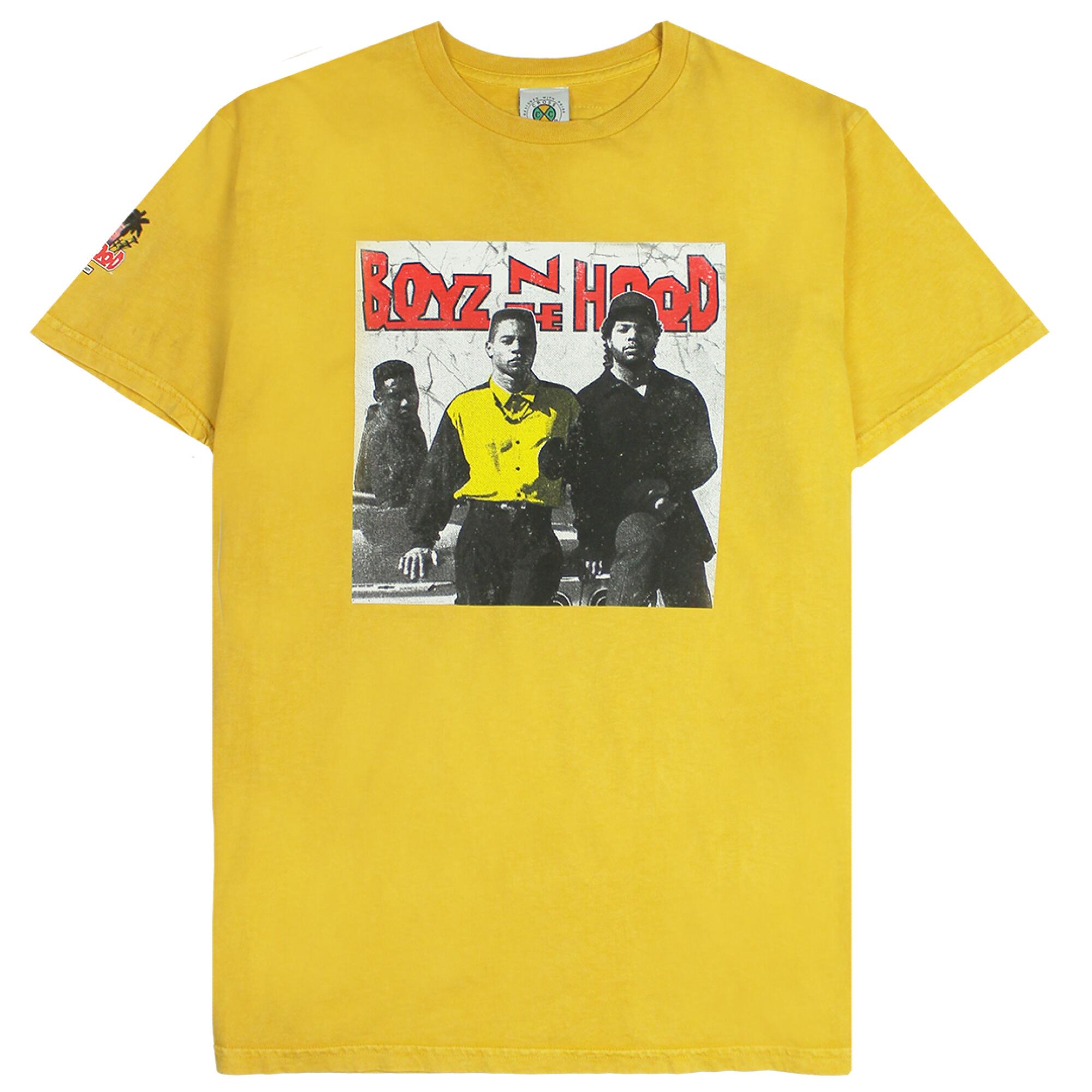
Your customer seems like a very loyal one. Now your original customers are introducing the brand to their kids. That’s quite a strong legacy.
TJW: We’ve always been more than clothes. We’ve been the community. The customer feels like they’re part of the brand. That’s the difference. You can talk to any of them from back in the day, when they come across the brand, and they’re like, “This brand is something that made me feel good back in the day.” They say that today as well. So, it has that built into the DNA of the brand. That’s what resonates — resonated then, and it still does today. It’s still a strong and powerful movement now. And it’s surprising to us because we thought [the ’90s comeback] would just trend out, but it’s just holding. It’s holding true.
